|
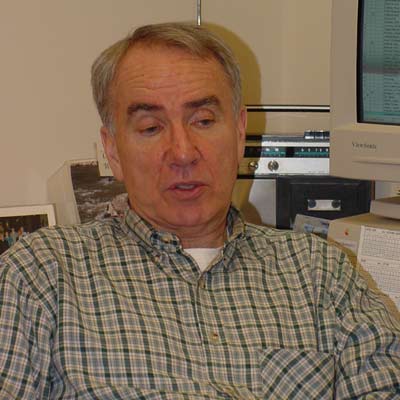 Al:
I know one of your former students, Erik Back. He told me that I ought to
interview. He really enjoyed you in class and said that you have an interesting
life. I would like to have you share with my readers your journey to teaching
at Notre Dame.
Al:
I know one of your former students, Erik Back. He told me that I ought to
interview. He really enjoyed you in class and said that you have an interesting
life. I would like to have you share with my readers your journey to teaching
at Notre Dame.
Ollie: I was born in West Orange, New Jersey, and
went to grade school and high school there. I came to Notre Dame to do a B.S.
in chemical engineering. While at Notre Dame, I was in the Navy ROTC and
commissioned as a naval officer when I graduated. I served in the Mediterranean
on a ship, the USS Pocono, for
two years. When my time was up, I decided I would try the seminary and came to
Notre Dame. I enjoyed studying philosophy, theology. I continued with that
program, got a Masters in theology in 1969, and was ordained a priest in the
Congregation of Holy Cross in 1970.
Al: Where did you get your doctorate?
Ollie: I applied to several PhD programs and got a
full scholarship at Vanderbilt in theology and ethics. After getting my degree,
I came back here and taught several years. I enjoyed teaching in the area of
Christian business ethics. The course dealt with what does it mean to be a
Christian in the business world. There was a growing interest on the part of
our students and faculty about business ethics. They asked me if I would
consider going full time teaching in the business school. I was very interested
and decided I would pursue it. First, I went off to Stamford Business School in
California and did a research year in business in their MBA program to make sure
I understood enough about the business world. Then I came back here and taught
a required course in the MBA program call "Business Ethics in a Changing World
Environment." It is concerned with today's global economy and helps the
students to understand a core set of ethical values. It is sort of a moral
compass if you will, in a very fluid and fluctuating business environment. Some
people ask about how can you mix the oil of ethics with the water of business.
Others think that business ethics is an oxymoron. Actually, it is quite easy
here at Notre Dame because there is a certain self-selection that goes on. When
students come to ND, they expect that they are going to get ethics, and they
would be disappointed if they didn't. Norte Dame is historically identified
with ethical values and ethical visions.
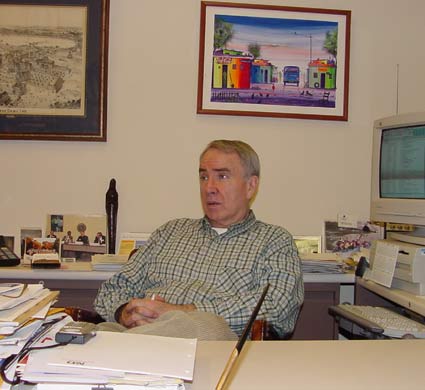 Al: Beyond your calling to the priesthood, Erik spoke
about your calling to the third world. Would you talk a little about your
experiences and your travels?
Al: Beyond your calling to the priesthood, Erik spoke
about your calling to the third world. Would you talk a little about your
experiences and your travels?
Ollie: It is interesting; I am often introduced as an
expert in South Africaand Southern Africa, which isn't really quite true.
My field is business ethics. When I first started teaching business ethics,
there was a chapter in all the textbooks on investing in apartheid South
Africa. I frankly couldn't decide what was the best answer, the correct answer,
the right answer: should the United States' companies be in South Africa? So, I
put in for a grant and went over there for three months to study the issue in
the summer of 1985. Originally, I was going to write an article on the
question, but it turned out to be a 150-page book called The Apartheid Crisis.
It sold very well, because it was very timely coming out in 1986. I argued
that if companies would get on the side of the blacks and champion the
dismantling of Apartheid, it would be better if they stayed in South Africa than
if they left. In 1985, during my time there, my sense was that the blacks would
be governing, would be in charge of the political system in short time, and of
course, by 1994, they were.
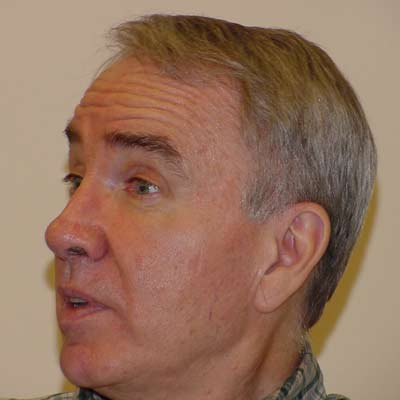 In any event, because of that book, I was put on as
an advisor to the Sullivan Principles. As you may recall, Leon Sullivan, who was
a very famous civil rights leader and black church leader, devised a set of
principles for companies that were operating in South Africa. He said that if
you are in a company in South Africa and want to stay there, you have to get on
the side of the blacks. He presented a set of principles design to guide
companies so that they could help the blacks dismantle Apartheid. I was asked
to be on the national advisory council to those principles and to advise them.
At that time, 200-US companies in So Africa. That was in 1987, and I was asked
to stay on. I also was put on the board of another group, which was a conduit
for USAID money, a group called, USSALDP, United States South Africa Leadership
Development Program. So, I have been over there every year since for one reason
or another. Then about five years ago, the University of Cape Town asked me if I
would consider teaching there in their MBA program, and I said it was
unrealistic to think that I could change the basis that was established at ND.
But, I told them that I would love to come and do a course every year. So, for
the last five years, I have been going over and teaching one graduate course at
the University of Cape Town and Stellenbosch University, which is right outside
Cape Town. I go in May and come back at the beginning of August, our summer,
which is their winter. Their winters are very pleasant. I have had a long
relationship with South Africa. In fact in 1991, I was asked by Nelson Mandela,
who was just out of prison a year then, if I would run a conference here at
Norte Dame to try to encourage US companies to re-enter or to come over for the
first time to South Africa for investment. We had a conference here that was
keynoted by the now president of South Africa, Mr. T. M. Mbeki. He is now
president of SA. He came here, and we had sixty major multi-national companies
come and talk about why they should they do business in SA.
In any event, because of that book, I was put on as
an advisor to the Sullivan Principles. As you may recall, Leon Sullivan, who was
a very famous civil rights leader and black church leader, devised a set of
principles for companies that were operating in South Africa. He said that if
you are in a company in South Africa and want to stay there, you have to get on
the side of the blacks. He presented a set of principles design to guide
companies so that they could help the blacks dismantle Apartheid. I was asked
to be on the national advisory council to those principles and to advise them.
At that time, 200-US companies in So Africa. That was in 1987, and I was asked
to stay on. I also was put on the board of another group, which was a conduit
for USAID money, a group called, USSALDP, United States South Africa Leadership
Development Program. So, I have been over there every year since for one reason
or another. Then about five years ago, the University of Cape Town asked me if I
would consider teaching there in their MBA program, and I said it was
unrealistic to think that I could change the basis that was established at ND.
But, I told them that I would love to come and do a course every year. So, for
the last five years, I have been going over and teaching one graduate course at
the University of Cape Town and Stellenbosch University, which is right outside
Cape Town. I go in May and come back at the beginning of August, our summer,
which is their winter. Their winters are very pleasant. I have had a long
relationship with South Africa. In fact in 1991, I was asked by Nelson Mandela,
who was just out of prison a year then, if I would run a conference here at
Norte Dame to try to encourage US companies to re-enter or to come over for the
first time to South Africa for investment. We had a conference here that was
keynoted by the now president of South Africa, Mr. T. M. Mbeki. He is now
president of SA. He came here, and we had sixty major multi-national companies
come and talk about why they should they do business in SA.
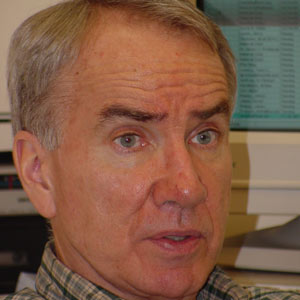 Al: What
American companies were most responsible in dealing creatively which changing
Apartheid? Al: What
American companies were most responsible in dealing creatively which changing
Apartheid?
Ollie: I would say the best in my mind is Johnson &
Johnson. They have always set a high ethical corporate culture. They have been
in South Africa for fifty years. There was tremendous pressure for them to
leave, and so the CEO at that time was Jim Burke, who was the one who led them
through the Tylenol crisis. He spent a lot of time having his people examine
whether they should leave. I think that they had about 5000 employees at that
time in two plants. He said that they weren't doing harm to the South African.
Obviously, they were paying taxes to a racist government, but on the other hand,
we were advancing blacks. They had black managers, which was against the law.
They rightfully violated the law by having blacks manage whites. They had
blacks on their board, which was against the law. They assisted blacks in
buying homes in white neighborhoods, which against the law also. They saw that
the laws were unjust, and we think we have given blacks income and job skills
that break down apartheid. They also provided a lot of money to help education
in black areas, medical care, and donated expensive machinery for hospitals.
So, I would say that J&J was a standout there. Colgate Palmolive was another
one that stayed in and did a lot of good for a lot of black people.
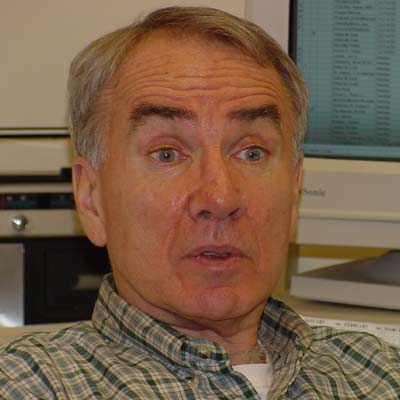 Al: What would account for Johnson and Johnson's social awareness?
Al: What would account for Johnson and Johnson's social awareness?
Ollie: It goes back to their founding documents, a
credo as it is called.
The founder was a General Johnson who was a very
moral, ethical, and a very religious person. He wrote the credo. The company's
first concern is for the people that we serve who use our products, mostly
medicines and health care products. Then he listed five or six additional
concerns. The last concern was the shareholder. He said that if they took care
of all of the above, which included communities, consumers, employees, and being
a good corporate citizen wherever they were, then the shareholders would do
well. That has always been J&J's philosophy. They just were not there just to
make money. They wanted to be good corporate citizens by providing goods and
services that people need and want. They have done that and their shareholders
have been rewarded handsomely. It has always worked for them. So it goes back
to the very ethical corporate culture that General Johnson shaped when he
founded the company.
Al: That is an interesting insight into one American
corporation. I notice that there is a picture of you and Desmond Tutu.
Ollie: That was when I first went over there in
1985. He was the then Officio of Johannesburg, subsequently he was promoted to
the Archbishop of Cape Town. He is retired now. In fact, his health is not too
good; he has prostate cancer. He is a wonderful person, a great hero, and
spokesperson for the poor and disenfranchised.
Al: What is your analysis of South Africa's successes
and failures?
Ollie: In 1994, they had their first election. It
was certainly a celebrated event throughout the world. I was selected by the US
State Department to be part of the UN observer mission for that election in
April 1994. It was a great occasion. We destroyed a political Apartheid with
one blow, but we still have economic Apartheid. SA has roughly 40 million
people and 30 million of them are black. They were undereducated and were
legally kept out of businesses and good positions in society. Overnight you are
not going to change all that. They have to get their education system brought
up to parity with the whites. Under Apartheid, the whites got some of the best
education in the world. I mean, it was a wonderful system. The University of
Cape Town is a world-class university and has been for a long time. Christian
Bernard, who died last year was there. Research and work in medicine has been
incredible in South Africa, but it was not shared with blacks. The upshot is in
1994, when Nelson Mandela became president, he inherited a country where the
income and wealth differences between blacks and whites were incredible. The
great majority of blacks are still living in squalor with 30% or more
unemployed. They don't have a social safety net as we do. There is very little
unemployment insurance if any for 98% of them. The problem is job creation and
unfortunately, just as South Africa got its freedom in 1994, the global economy
the global economy began a lot of restructuring. It meant a lot of downsizing
for efficiency, and it was difficult to expand jobs in the economy like South
Africa. The job creation has gone very slowly since '94 and consequently the
crime problems in Johannesburg are incredible. Cape Town, for a whole lot of
other reasons, is not too bad. It is a great tourist center, one of the most
beautiful cities in the world.
 Al: I would also
like to know about the educational system. If you kept the people in poverty
and poorly educated, it will take an entire generation before you can really see
results. What is happening in education? Al: I would also
like to know about the educational system. If you kept the people in poverty
and poorly educated, it will take an entire generation before you can really see
results. What is happening in education?
Ollie: It is moving rapidly to be more equitable.
For example, I teach in a night MBA program. People have to work all day, and
the students are primarily the previously disadvantaged, which are blacks. The
employers are picking out people who are pretty bright for this program. The
government or the employer is paying for it.
There is no quick fix to this problem, but that is
probably the best kind of fix-to get people qualified as quickly as you can.
The University of Cape Town for example, which was 100% white, probably
twenty-years ago. Now, it is 40-45% black. It is a world-class university
where the students are getting very good education. We are seeing a lot of
dramatic changes, which bodes well for the future, but it will take time. On
Sundays, I go down to the black townships and say Mass, which are about
twenty-five minutes out of Cape Town. I live in a very nice area, and I drive
from what would be considered very upscale area to where the blacks largely live
in hovels. They live in places where I wouldn't keep my dog. They come to
church, sing, and dance for two hours. The kids have white shirts and ties;
they are spotless. I often say to them, "Why are you so patient?" They say,
"Well, look at the new schools they brought in, new buildings, and upgrading
teachers. All this has been done largely in the last five or ten years." There
is great hope for the future, and so far, that's contained the disparity in
wealth and income. They see their kids having a way out. Frankly, I think that
hope will endure.
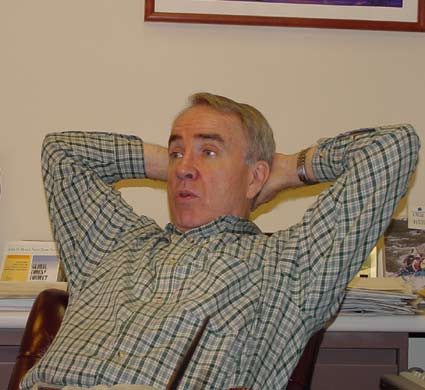 Al: What about some of the neighboring countries and
their move into the 21st century?
Al: What about some of the neighboring countries and
their move into the 21st century?
Ollie: There are not too many success stories in
there. Zimbabwe was the great hope, but it's a basket case now with extremely
poor leadership. They always say about democracies in SA is one man, one vote,
one election. You know, once a person gets in, he doesn't want to get out.
Robert Mogabe in Zimbabwe is a typical example. He has finagled and cheated his
way to be reelected, and the country is going down the tube-the economy is zero,
unemployment, hunger, and healthcare. It is just dismal; it is just crazy
stuff. It's very sad. Nelson Mandela was a great role model for them and then
after his elected term was up, he said that he wasn't going to run. People
didn't really believe him, because that wasn't the African tradition. Once you
are a tribal chief, you stay on, one way or the other, by hook or crook, mostly
the latter. Bishop Tutu has said that Robert Mogabe is a caricature of all that
is wrong in Africa, and I think that sums it up very well. Kenya, Zambia,
Tanzania were other great hopes, but they are absolute basket cases. I've been
in all these countries. They are beautiful, gifted with a number of natural
resources, but it takes applied human intelligence along with natural resources
to make a success. My black friends say you can't blame it all on the
colonials, but we certainly are paying the price. US, for example, propped up a
lot of these corrupt leaders, because they were anti-communists. We didn't care
what they did as long as they were against the Soviet Union. Now, there is a
relatively good success story is Botswana. It has a million people just north
of South Africa. It has a lot of desert area, but it's got an educated
citizenry. It has a good government, a good infrastructure; so, it can work.
Al: Another issue about which we are concerned is the
Aids epidemic in Africa.
Ollie: Yes, well, as you may know, there are thirty
million people with HIV in sub-Saharan Africa. It's incredible. Most of those
thirty million have never seen a doctor. They live in rural areas without a
medical infrastructure. In South Africa alone, they estimate four million
people out of forty million have HIV, and the government has not really come to
grips with it. It threatens to make a bad situation even worse. I'm running a
major conference here in April, which is closed to the press and to the public.
We are inviting fifty people, major leaders, from Africa, Latin America, and
Asia to sit down with the pharmaceutical companies that have drugs that can
contain Aids. It is being paid for five or six companies like Merck, Pfizer,
Bristol Myers Squibb, J&J. We will fly these people in from all over the world,
but we are also bringing in their chief critics, doctors who are very critical
of the pharmaceutical industry. It is a closed-door conference so people won't
come to posture or to talk to the press. The purpose of the meeting designed to
find ways to increase access to medicines and healthcare by the poor in
developing countries. We can complain, wring hands, and throw charges; that
won't solve the problem. Let's assume that we get the companies to give the
medicines away, and frankly, there are a lot more willing to do an awful lot of
that already. They are more willing than you can imagine, because they are not
making any money in Africa for example. They are making their money in the US,
which you probably know if you have bought any medicines recently. Just
imagine, we shipped over a warehouse full of all the drugs that can contain HIV
and Aids, we would probably reach 1 or 2% of the people because you can't take
those medicines without doctor's care. They have to be monitored. The
scientists will tell you that they don't want anyone to take these medicines
without a doctor or at least a paramedical, because they are going to get
mutations which will destroy the viability of the drug if they don't take them
at the right times and on a full stomach. It is quite a rigorous regimen that
you have to follow for these drugs to work. So, we are talking about an
extremely difficult problem, and I think it is going to take action by the world
community, a coalition of people, government leaders, the US, and pharmaceutical
companies to solve this problem.
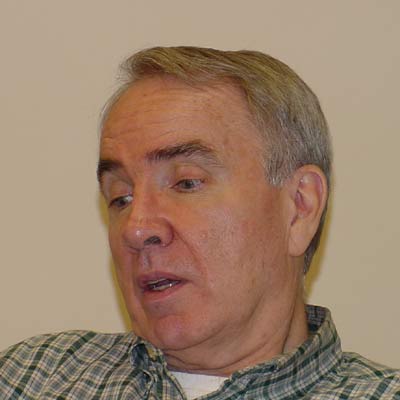 The pharmaceutical
companies are under a lot of pressure from interest groups in the US and Europe
to do something; they are under a lot of pressure from their own scientists. I
remember asking a senior executive who are so interested in doing more for Aids
in Africa, "You know, I am delighted you are interested, but why are you so
interested?" "Well," he said, "most of the people in my end of the business are
interested in a return on their investment, but our scientists are not as money
driven, and our scientist's turnover is our highest cost. The good scientists
are always getting better deals with competitors, and the scientists want us to
be doing something. They want their work to be helping those who are dying from
this disease." So, he said, "We have to listen to our scientists." The pharmaceutical
companies are under a lot of pressure from interest groups in the US and Europe
to do something; they are under a lot of pressure from their own scientists. I
remember asking a senior executive who are so interested in doing more for Aids
in Africa, "You know, I am delighted you are interested, but why are you so
interested?" "Well," he said, "most of the people in my end of the business are
interested in a return on their investment, but our scientists are not as money
driven, and our scientist's turnover is our highest cost. The good scientists
are always getting better deals with competitors, and the scientists want us to
be doing something. They want their work to be helping those who are dying from
this disease." So, he said, "We have to listen to our scientists."
The problem is complicated, and I think most Americans
don't like to deal with the complicated problems. We always like to say, these
are the people on the white horses and these are the people on the black horses.
It is easy to figure out who is good and who is evil. Then we can action.
However, it is not that simple at all. What the companies are saying is that
it costs us $600-700 million for each new drug. For every 100-150 drugs that
they are working on, only a few get to market. So, this is a very high risk
business, and the only way that big companies are willing to put research money
out there on the table, and last year they put out thirty-billion dollars and
employed fifty thousand scientists many of whom are putting their hearts and
souls into trying to find cures for this or that. The companies can recoup
their investment by these years when no one else can sell their product. They
cannot give up the principle of intellectual property rights in developed
countries, that is, they are making money in Europe and the US, and to some
extent, Japan. Less than 1% of their money comes from Africa. One of the
problems is that if they give medicines say in Zambia, then it is found for sale
in New York next month. Corruption is so terrible. They call it "round
tripping." Governments need to control the corruption.
 Al: What are the other issues that you see globally
that need to be addressed? Al: What are the other issues that you see globally
that need to be addressed?
Ollie: One issue that has gotten a lot of attention
in the world is sweatshops. Here again, it is much more complicated than it
first looks. Take Norte Dame for example. We have been right in the middle of
this one. It turns out that we sell more T-shirts, Norte Dame caps, and college
apparel than most universities. We have our catalogs, and you can buy Norte
Dame items in Penney's. It's incredible. Our logo is so highly sought after
throughout the world. Almost all of these apparel items are made in developing
countries. It turns out that in some places, it's made under extremely
unethical conditions, where people are sexually harassed, where they can't go to
the bathroom when they want to, where they work long hours, and without decent
overtime. There has been a lot of pressure to monitor these sweatshop
conditions, to see that in fact people are treated humanely. We monitor our own
subcontractors because there has been so much pressure on us-good pressures it
seems to me. Now unfortunately, a certain amount of the pressure on this
sweatshop issue comes from labor unions in the US who really want to keep all
the jobs in the US. Understandably, their agenda is not the same mine. Mine is
to have people treated humanely and to create work for them. The labor unions
want to keep all the jobs here. They want to have the bar so high that they
wouldn't manufacture our shirts in El Salvador. I understand that point, but my
horizon simply doesn't find that very satisfying. It is another one of those
issues where it is very complex.
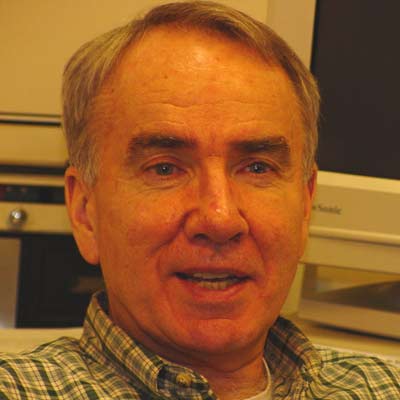 Al: Is a
sweatshop better than no shop? Al: Is a
sweatshop better than no shop?
Ollie: Well, sure, but it seems to me those of us who
have the wherewithal should make sure that nobody is treated inhumanely. Look,
if I'm starving, I will do anything to get bread on the table. Nevertheless, if
you have many resources, you should make sure that I don't cross the line and
accept inhumane treatment.
Al: Is there any argument from the other side that if
Americans pay wages that are good, that it would disrupt the economy of the host
country?
Ollie: Yes. I have done research in some detail on
that issue. You could argue that if we paid wages that were too high for some
societies that it would be very inflationary and would affect the economy.
There is no question about it, but that doesn't mean you do nothing. Levi
Strauss is a great example. They faced this problem is Bangladesh. They
decided they could afford to give workers a certain amount as a salary for
making their apparel. However, it would be so out of phase with what everybody
else was getting, it would cause problems in the society. What they did was to
use allocate some of the money to opening and running schools, particularly for
kids who used to be working for them. Levi Strauss actually helped build the
infrastructure with some money that normally they would paid out in salaries,
but that would have been so disruptive if they had.
Al: So they just skim money off the top and put it
somewhere else?
Ollie: That's right. The Hocks family that owns Levi
Strauss happens to have a conscience. They are very devout Jewish people, and
they could have put that money in their own pocket, but they said we don't want
that money. We want to help build up that society.
Al: Ollie, I really appreciate your time. I am
planning a trip to the South Pacific for some research for some articles. I
think that I will have to put South Africa on the list for some future trip.
Ollie: Put Cape Town on your list!
Al: Now, who is the successor to Desmond Tutu?
Ollie: Archbishop Ndungane.
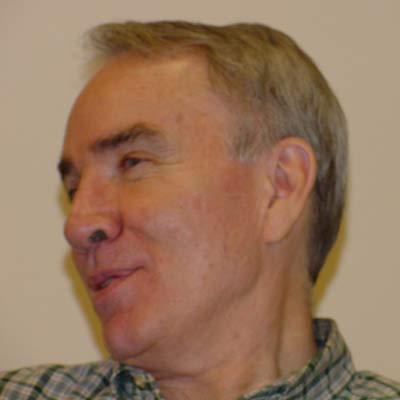 Al: When you see him, ask him whether outside his
office, there is a bed of yellow daffodils. I had written to Desmond Tutu
to get his response to some questions that I had. To thank him for his time, I
sent him an article that dealt with daffodils and life. I included some
daffodils bulbs. The next year, he wrote back to tell me that the daffodils
were growing.
Al: When you see him, ask him whether outside his
office, there is a bed of yellow daffodils. I had written to Desmond Tutu
to get his response to some questions that I had. To thank him for his time, I
sent him an article that dealt with daffodils and life. I included some
daffodils bulbs. The next year, he wrote back to tell me that the daffodils
were growing.
Ollie: Oh, that's lovely.
|







 Al:
I know one of your former students, Erik Back. He told me that I ought to
interview. He really enjoyed you in class and said that you have an interesting
life. I would like to have you share with my readers your journey to teaching
at Notre Dame.
Al:
I know one of your former students, Erik Back. He told me that I ought to
interview. He really enjoyed you in class and said that you have an interesting
life. I would like to have you share with my readers your journey to teaching
at Notre Dame. Al: Beyond your calling to the priesthood, Erik spoke
about your calling to the third world. Would you talk a little about your
experiences and your travels?
Al: Beyond your calling to the priesthood, Erik spoke
about your calling to the third world. Would you talk a little about your
experiences and your travels? In any event, because of that book, I was put on as
an advisor to the Sullivan Principles. As you may recall, Leon Sullivan, who was
a very famous civil rights leader and black church leader, devised a set of
principles for companies that were operating in South Africa. He said that if
you are in a company in South Africa and want to stay there, you have to get on
the side of the blacks. He presented a set of principles design to guide
companies so that they could help the blacks dismantle Apartheid. I was asked
to be on the national advisory council to those principles and to advise them.
At that time, 200-US companies in So Africa. That was in 1987, and I was asked
to stay on. I also was put on the board of another group, which was a conduit
for USAID money, a group called, USSALDP, United States South Africa Leadership
Development Program. So, I have been over there every year since for one reason
or another. Then about five years ago, the University of Cape Town asked me if I
would consider teaching there in their MBA program, and I said it was
unrealistic to think that I could change the basis that was established at ND.
But, I told them that I would love to come and do a course every year. So, for
the last five years, I have been going over and teaching one graduate course at
the University of Cape Town and Stellenbosch University, which is right outside
Cape Town. I go in May and come back at the beginning of August, our summer,
which is their winter. Their winters are very pleasant. I have had a long
relationship with South Africa. In fact in 1991, I was asked by Nelson Mandela,
who was just out of prison a year then, if I would run a conference here at
Norte Dame to try to encourage US companies to re-enter or to come over for the
first time to South Africa for investment. We had a conference here that was
keynoted by the now president of South Africa, Mr. T. M. Mbeki. He is now
president of SA. He came here, and we had sixty major multi-national companies
come and talk about why they should they do business in SA.
In any event, because of that book, I was put on as
an advisor to the Sullivan Principles. As you may recall, Leon Sullivan, who was
a very famous civil rights leader and black church leader, devised a set of
principles for companies that were operating in South Africa. He said that if
you are in a company in South Africa and want to stay there, you have to get on
the side of the blacks. He presented a set of principles design to guide
companies so that they could help the blacks dismantle Apartheid. I was asked
to be on the national advisory council to those principles and to advise them.
At that time, 200-US companies in So Africa. That was in 1987, and I was asked
to stay on. I also was put on the board of another group, which was a conduit
for USAID money, a group called, USSALDP, United States South Africa Leadership
Development Program. So, I have been over there every year since for one reason
or another. Then about five years ago, the University of Cape Town asked me if I
would consider teaching there in their MBA program, and I said it was
unrealistic to think that I could change the basis that was established at ND.
But, I told them that I would love to come and do a course every year. So, for
the last five years, I have been going over and teaching one graduate course at
the University of Cape Town and Stellenbosch University, which is right outside
Cape Town. I go in May and come back at the beginning of August, our summer,
which is their winter. Their winters are very pleasant. I have had a long
relationship with South Africa. In fact in 1991, I was asked by Nelson Mandela,
who was just out of prison a year then, if I would run a conference here at
Norte Dame to try to encourage US companies to re-enter or to come over for the
first time to South Africa for investment. We had a conference here that was
keynoted by the now president of South Africa, Mr. T. M. Mbeki. He is now
president of SA. He came here, and we had sixty major multi-national companies
come and talk about why they should they do business in SA.  Al: What
American companies were most responsible in dealing creatively which changing
Apartheid?
Al: What
American companies were most responsible in dealing creatively which changing
Apartheid?  Al: What would account for Johnson and Johnson's social awareness?
Al: What would account for Johnson and Johnson's social awareness? Al: I would also
like to know about the educational system. If you kept the people in poverty
and poorly educated, it will take an entire generation before you can really see
results. What is happening in education?
Al: I would also
like to know about the educational system. If you kept the people in poverty
and poorly educated, it will take an entire generation before you can really see
results. What is happening in education? Al: What about some of the neighboring countries and
their move into the 21st century?
Al: What about some of the neighboring countries and
their move into the 21st century? The pharmaceutical
companies are under a lot of pressure from interest groups in the US and Europe
to do something; they are under a lot of pressure from their own scientists. I
remember asking a senior executive who are so interested in doing more for Aids
in Africa, "You know, I am delighted you are interested, but why are you so
interested?" "Well," he said, "most of the people in my end of the business are
interested in a return on their investment, but our scientists are not as money
driven, and our scientist's turnover is our highest cost. The good scientists
are always getting better deals with competitors, and the scientists want us to
be doing something. They want their work to be helping those who are dying from
this disease." So, he said, "We have to listen to our scientists."
The pharmaceutical
companies are under a lot of pressure from interest groups in the US and Europe
to do something; they are under a lot of pressure from their own scientists. I
remember asking a senior executive who are so interested in doing more for Aids
in Africa, "You know, I am delighted you are interested, but why are you so
interested?" "Well," he said, "most of the people in my end of the business are
interested in a return on their investment, but our scientists are not as money
driven, and our scientist's turnover is our highest cost. The good scientists
are always getting better deals with competitors, and the scientists want us to
be doing something. They want their work to be helping those who are dying from
this disease." So, he said, "We have to listen to our scientists." Al: What are the other issues that you see globally
that need to be addressed?
Al: What are the other issues that you see globally
that need to be addressed?  Al: Is a
sweatshop better than no shop?
Al: Is a
sweatshop better than no shop? Al: When you see him, ask him whether outside his
office, there is a bed of yellow daffodils. I had written to Desmond Tutu
to get his response to some questions that I had. To thank him for his time, I
sent him an article that dealt with daffodils and life. I included some
daffodils bulbs. The next year, he wrote back to tell me that the daffodils
were growing.
Al: When you see him, ask him whether outside his
office, there is a bed of yellow daffodils. I had written to Desmond Tutu
to get his response to some questions that I had. To thank him for his time, I
sent him an article that dealt with daffodils and life. I included some
daffodils bulbs. The next year, he wrote back to tell me that the daffodils
were growing.